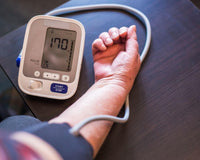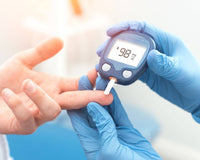Carvedilol Warnings, Uses, Dosage, And Side Effects
Carvedilol is a prescription medication used to treat high blood pressure and prevent heart disease, heart attack, and stroke. In the following short article, we discuss the uses, side effects, dosage, warnings and interactions of carvedilol.
Carvedilol Side Effects
Carvedilol does have some associated side effects. Some of these side effects may be more serious and less common than others.
Common Side Effects Of Cardevilol
The common side effects of cardevilol include the following:
- Chest pain
- Chest discomfort
- Weight gain
- Slow heartbeat
- Pain in legs, knees or ankles
- Fainting
- Dizziness
- Lightheadedness
If these side effects are mild, they should disappear within a few days. If side effects persist, talk to your doctor or another healthcare professional.
Serious Side Effects
Some side effects of carvedilol are more serious and may require medical attention. Talk to your doctor immediately if you experience any of the following side effects of carvedilol. Call 911 if you think your symptoms may be life-threatening.
- Dark urine
- Convulsions
- Depression
- Persistent cough
- Cloudy urine
- Chills
- Hives
- Rash
- Difficulty swallowing
- Difficulty breathing
- Fainting
- Intense swelling
Disclaimer: Here at Manifest Pharmacy, our goal is to provide you with the most relevant and current information. However, because drugs affect each person differently, we cannot guarantee that this information includes all possible side effects. This information is not a substitute for medical advice. Always discuss possible side effects with a healthcare professional who knows your medical history.
Carvedilol Mechanism Of Action
Carvedilol's action on alpha-1 androgenic receptors allows it to lower blood pressure. This action relaxes muscle in the vasculature and blood vessels, leading to a reduction in vascular resistance and overall blood pressure.
Carvedilol Uses
The uses of carvedilol include high blood pressure, heart disease, and stroke. It has also been proven to be useful in treating angina, a condition marked severe pain in the chest and shoulders.
Carvedilol Warnings
Carvedilol does come with multiple warnings, some of which are more serious than others.
Low Heart Rate Warning
Carvedilol can decrease heart rate to potentially dangerous levels. If your heart rate drops below 55 beats per minute while taking carvedilol, talk to a doctor immediately.
Low Blood Pressure Warning
Carvedilol can dangerously lower blood pressure, potentially resulting in fainting and other serious conditions. This risk is higher after the first and second doses of carvedilol. To decrease the risk of fainting, take carvedilol with food and drink.
Diabetes Warning
Carvedilol can decrease blood sugar levels and delay how long it takes blood sugar to return to normal. If you have low blood sugar and are considering taking carvedilol, talk to a healthcare professional first.
Carvedilol Brand Names
The brand name drug forms of carvedilol include Coreg and Coreg CR.
How To Take Carvedilol
It is best to take carvedilol at the same time each day, preferably in the morning with breakfast. If you take carvedilol twice a day, take on dose in the morning and one dose in the evening.

Swallow carvedilol tablets whole with a glass of water. If you take two doses a day, leave at least 12 hours between doses.
Carvedilol Dosage
The dosage of carvedilol may be different for each patient. Dosage considerations may vary depending on the following factors:
- Your age
- Your weight
- Severity of condition
- Time between doses
- Number of doses
Carvedilol Dosage For Heart Failure
Adults: At first, 10 milligrams (mg) once a day for at least two weeks. Your doctor may adjust your dose as needed. However, the dose is usually not more than 80 mg once a day.
Children: Use and dose must be determined by your doctor.
Carvedilol Dosage For Hypertension
Adults: At first, 20 milligrams (mg) once a day for 7 to 14 days. Your doctor may adjust your dose as needed. However, the dose is usually not more than 80 mg once a day.
Children: Use and dose must be determined by your doctor.
Carvedilol Dosage For Left Ventricular Dysfunction
Adults: At first, 20 milligrams (mg) once a day for 3 to 10 days. Your doctor may adjust your dose as needed. However, the dose is usually not more than 80 mg once a day.
Children: Use and dose must be determined by your doctor.
Interactions Of Carvedilol
Carvedilol oral tablet can interact with a number of other medications, herbs, and vitamins. If you are unsure of how carvedilol might interact with any drugs you are currently taking, talk to your doctor.
Heart Rhythm Drugs
Certain heart rhythm drugs can worsen the side effects of carvedilol when taken simultaneously. Examples of these unwanted side effects include significantly low blood pressure, heart blockage, and increased heart rate. These heart rhythm drugs include:
- Amiodarone
- Quinidine
- Encainide
- Dixogin
- Bretylium
- Flecainide
- Sotalol
- Propafenone
- Procainamide
Blood Pressure Drug Interaction
Taking the blood pressure drug clonidine in conjunction with carvedilol can lower blood pressure and heart rate to dangerously low levels. If you need to take clonidine and cavedilol at the same time, your doctor will talk to you and closely monitor dosage and side effects.
Calcium Chain Blocker Interaction
Taking calcium chain blockers such as dilitiazem and verapamil in conjunction with carvedilol can lead to unwanted side effects that affect the heart. If you need to take dilitiazem or verapamil at the same time as carvedilol, your doctor will talk to you and closely monitor dosage and side effects.
Cyclosporine Interaction
It is not recommended to take cavedilol and cyclosporine at the same time. Doing so can significantly reduce the levels of cyclosporine in your system. If you need to take both drugs simultaneously, your doctor will talk to you and closely monitor dosage and side effects.
Carvedilol Side Effects, Uses, Dosage, And Warnings
Carvedilol is a prescription medication used to treat high blood pressure and prevent heart disease, heart attack, and stroke. Its mechanism of action relaxes muscle in the vasculature and blood vessels, leading to a reduction in vascular resistance and overall blood pressure.








